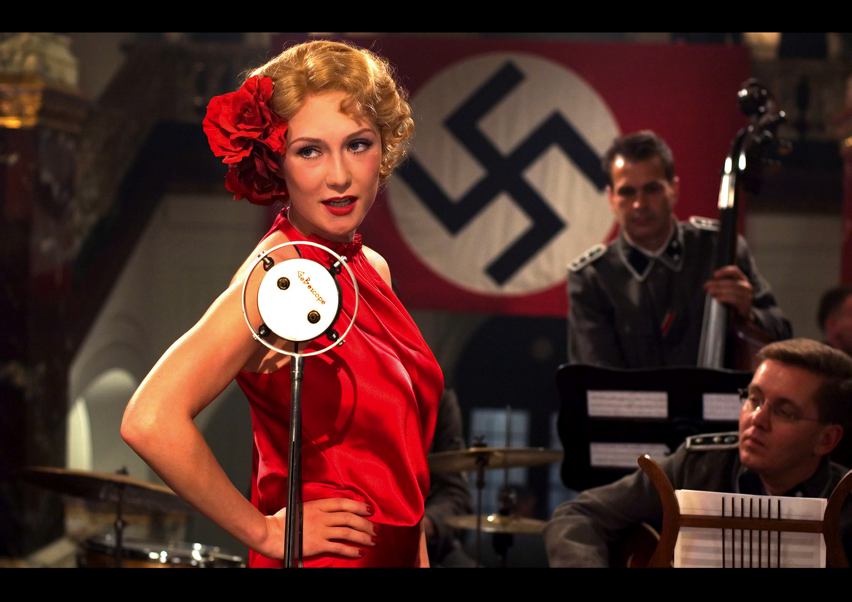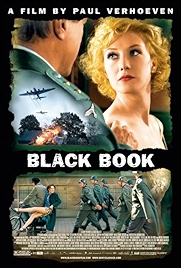A movie for every day of the year – a good one
23 May
Netherlands declares independence from Spain, 1568
On this day in 1568, the battle of Heligerlee was fought and won by the rebel army of William I of Orange, against the Duke of Alba, representative of the Hapsburg ruling dynasty. It marked the beginning of the 80 Years’ War for the independence of the Protestant Netherlands from Catholic Spanish rule. Though the rebels won the battle, they lost the campaign, due to lack of funds, and the rebellion sputtered out, only to flame up again in 1572. By 1581 the Netherlands were independent, though it took until 1648 for this to be recognised by Spain, who were at various times in the interim fighting a war against France, Turkey and England, all of whom wanted to prevent the Hapsburgs from becoming the dominant family in Europe. At a time when dynasties appeared to be the natural order in Europe, the Netherlands’ fight for independence marked a shift towards a different organising principle: the nation state.
Black Book (2006, dir: Paul Verhoeven)
Paul Verhoeven, born in the Netherlands in 1938, decamped to Hollywood in the 1980s, where he made a run of hugely successful hit movies. Some were powerfully imagined sci-fi numbers (Total Recall, RoboCop), others trashy teases (Showgirls, Basic Instinct), some a bit of both (Starship Troopers, Hollow Man). For his return to his native country he’s gone back to the territory explored in Soldier of Orange – the Second World War – and is using all the tricks he learnt marshalling some of Hollywood’s moodiest actors and biggest budgets to tell a widescreen story of a singer called Rachel who, after seeing her entire family killed and then, in death, turned over for their valuables, infiltrates the Gestapo to pass information back to the Netherlands Resistance. Rachel is a Jew, and the name is a giveaway, so along with dying her hair blonde, she takes a gentile name, Ellis, and dives in.
This is a story of clear goodies and baddies. Well it would be if Verhoeven hadn’t made it. Rachel/Ellis is obviously on the side of the angels, but otherwise there are more shades of grey in Black Book (choice of title obviously ironic) than you get in the average war film made by someone who actually remembers the Nazis inhabiting his home country, as Verhoeven does. Disconcertingly, the baddies turn out to have redeeming features. In the case of one appallingly bestial Nazi, he has the most gorgeous singing voice. In the case of local Nazi boss Ludwig Müntze (Sebastian Koch), he’s a cultured man, a stamp collector, obeying orders with a great deal of reluctance. The goodies, too, aren’t that great, there being something very dubious going on in the higher echelons of the Dutch Resistance. At one point, in fact, Rachel/Ellis is caught between both parties, accused by each of being a spy. What is a girl to do? Verhoeven also addresses that old saw, of the Jews being in some sense responsible for their fate, in the figure of this brave woman putting her life on the line every day to try and defeat Hitler and his henchmen.
As well as being a cracking wartime thriller, Black Book is a Verhoeven film, so there’s got to be nudity, though watch how it is used. Rachel/Ellis dyes her pubic hair – careful girl – so collar and cuffs will pass even intimate tests. There are a number of scenes in which naked Gestapo men make sexual sport with local Dutch girls. The girls are naked because they are chattels; the men are naked as a sign of their power. Yet in the scenes where Rachel goes to bed with Müntze, intending to do him injury but in fact falling for him, nudity turns into something more familiar – a marker of genuine intimacy. This lack of fear in the face of the naked body has always marked Verhoeven out, and may explain why some of the reviews for this film were a bit lukewarm; payback from the puritans. Though the critical herd mentality could be at play too – Verhoeven just isn’t hot any more. And nor are war films. Black Book is not perfect, there is a terrible squeezing of too much material into too small a space once the war ends and Rachel heads off fairly unnecessarily to a kibbutz, but Carice Van Houten’s performance is nuanced and magnetic and star-making, and Koch is as great as he ever is (you might have seen him as the lead in The Lives of Others). This is a film that deserves to be seen.
Why Watch?
- A great Verhoeven film
- Carice Van Houten’s performance
- Sebastian Koch’s performance
- The Netherlands’ most expensive movie to date
Black Book – at Amazon
I am an Amazon affiliate
© Steve Morrissey 2014

